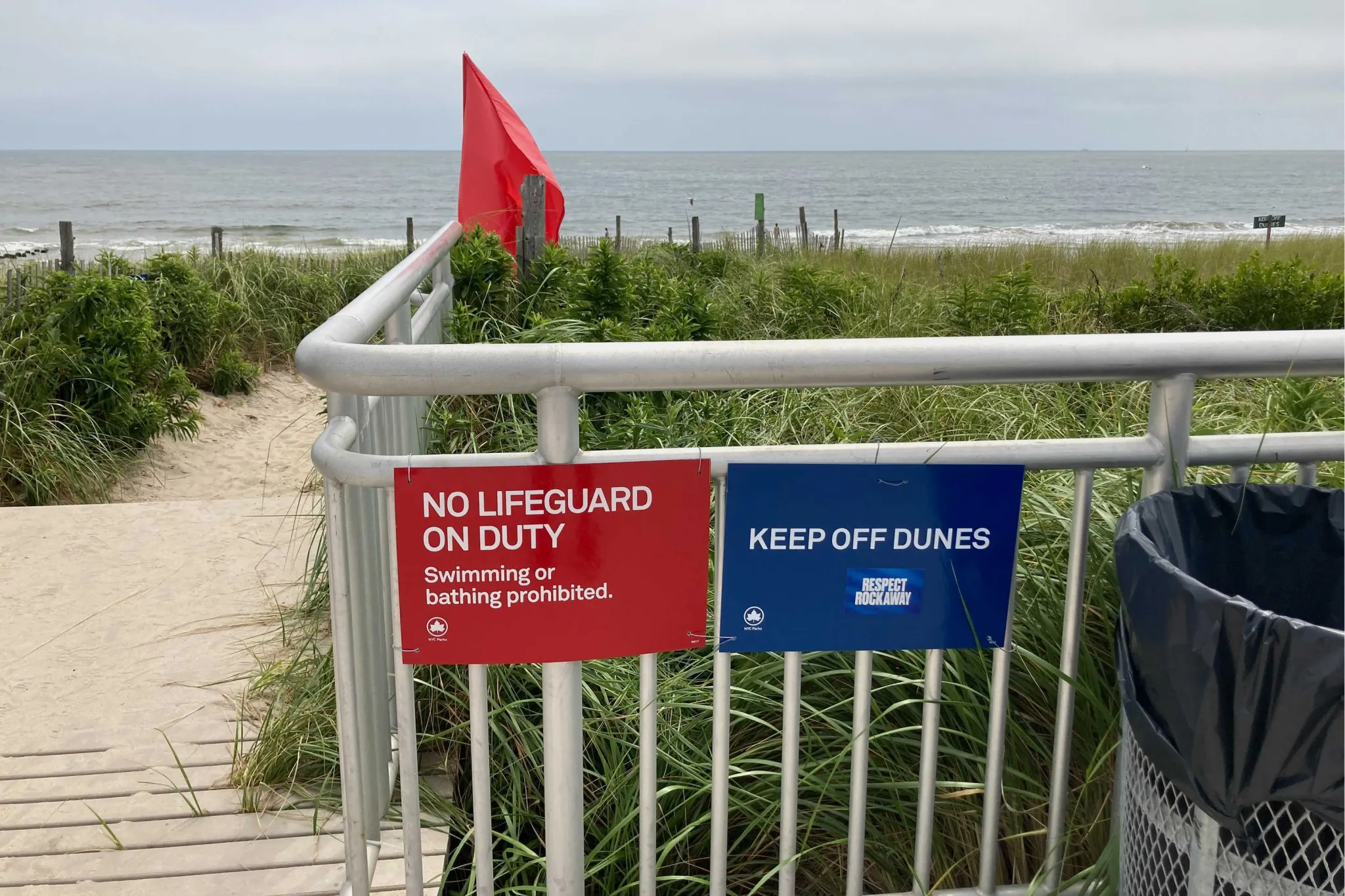Lifeguards Wave Off Safety Recommendations From City Investigators
Five months after the city Department of Investigation suggested 13 ways to clean up the Parks Department’s Lifeguard Division, none of them have been fully acted upon as beach season is upon us.

Signs near Beach 101st Street warn swimmers on Aug. 10, 2021.
Aria Velasquez/THE CITY
 This article was originally published on by THE CITY.
This article was originally published on by THE CITY.
In December 2021, the city’s investigative agency found the Department of Parks and Recreation’s lifeguard division has been drowning in mismanagement and dysfunction for decades.
According to the 20-page Department of Investigation report, the Parks Department allows the unit overseeing lifeguards to operate as its own fiefdom, with poor oversight.